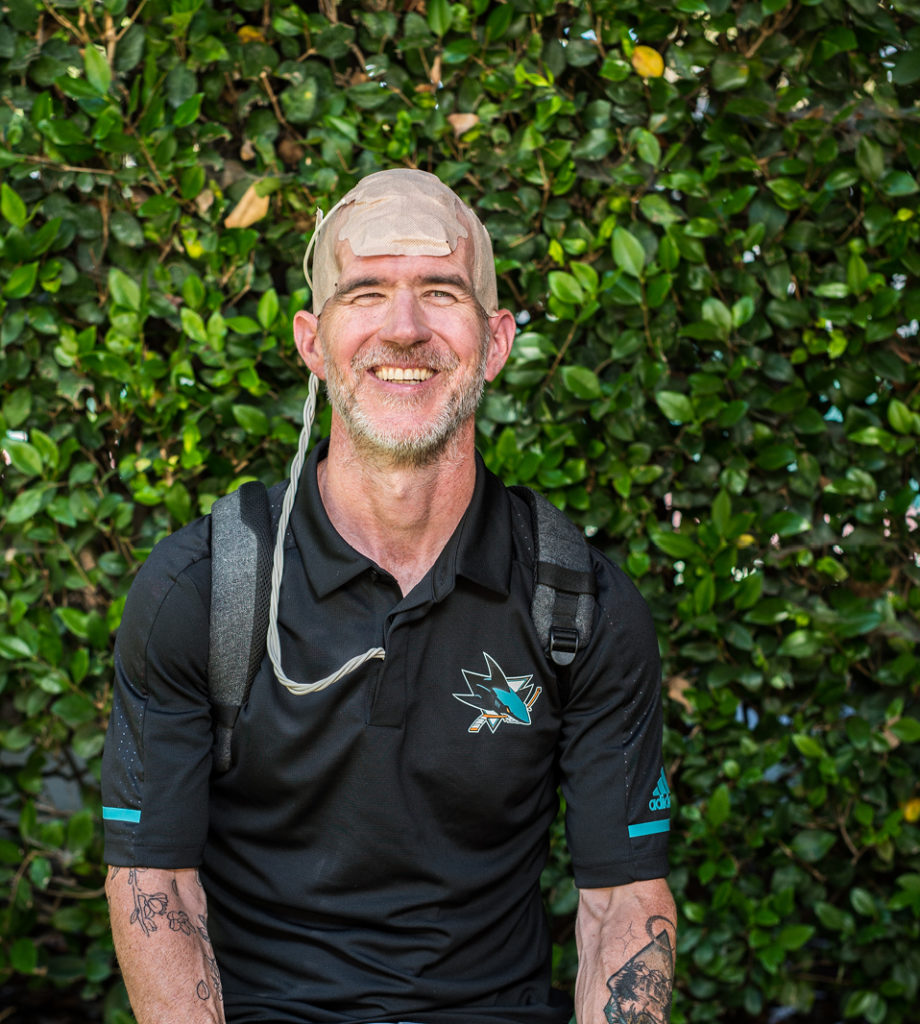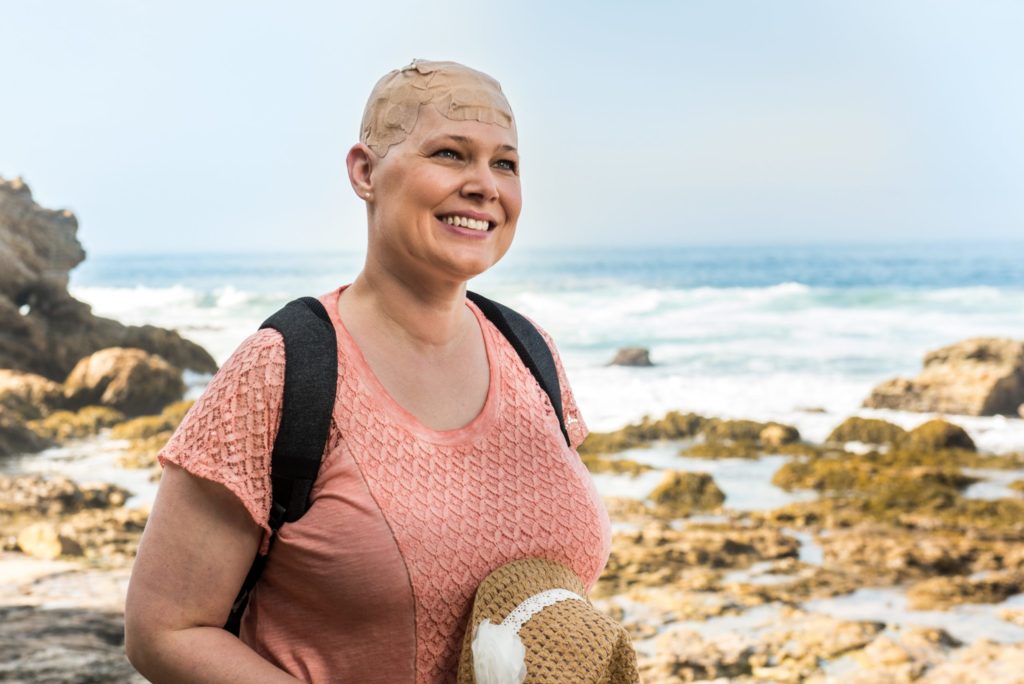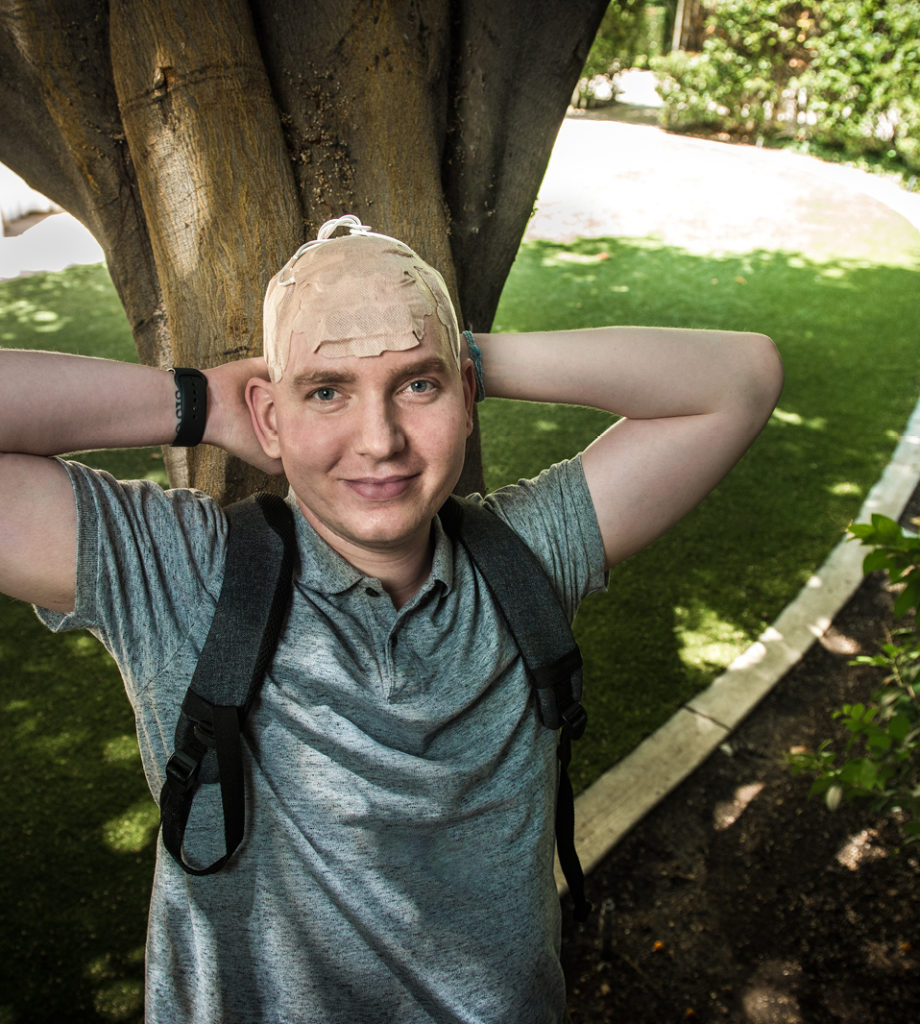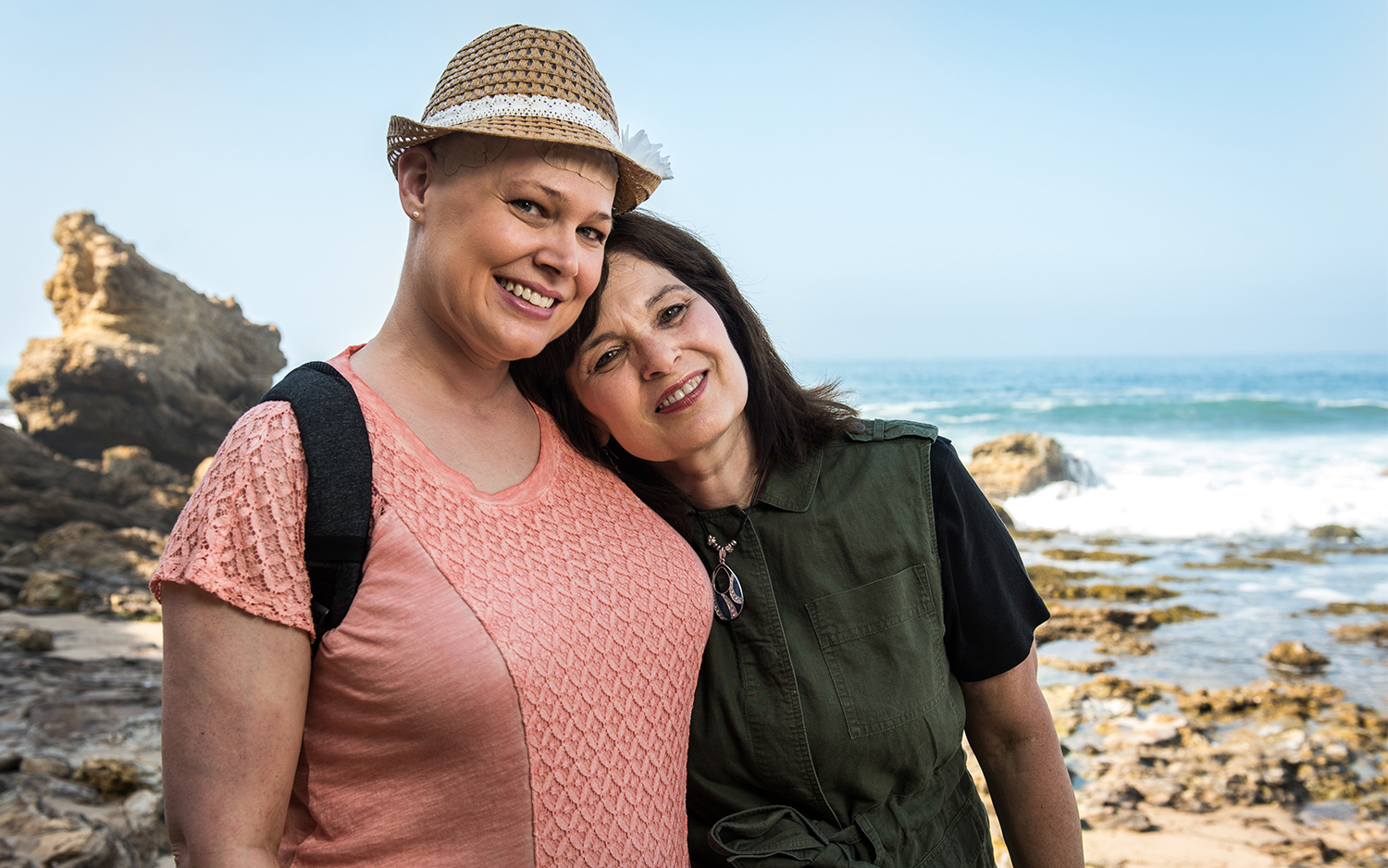
As a global oncology company focusing on improving survival in some of the most aggressive forms of cancer, Novocure proudly stands with the brain tumor community during May for Brain Tumor Awareness Month (BTAM).
The American Cancer Society estimates that nearly 24,000 Americans will be diagnosed with a brain tumor or other central nervous system cancer this year. The brain tumor community in the U.S. includes patients, their families and friends, advocacy groups and health care providers.
“At Novocure, our patient-forward mission drives us,” Novocure’s CEO Asaf Danziger said. “Together with our patients, we strive to extend survival in some of the most aggressive forms of cancer. The brain tumor community has a strong and powerful voice. We hear and stand with this community not only during Brain Tumor Awareness Month but every day.”
JB, who has glioblastoma (GBM), often connects with other GBM patients through Novocure’s patient and caregiver support program and encourages them to reach out to their support systems and to focus their attention during challenging times.
“I tell GBM patients: If you are in a similar fight, just know you don’t have to do it alone,” JB said. “There are support groups out there. If you’re having a bad time, find an outlet that works for you.”
GBM patients and their caregivers shared their insights on living with the disease and navigating its challenges.
Brian B: “I used to be against the idea of support groups until my wife told me something that I’ll never forget: ‘It’s not for you. It’s for the people who want answers.’ That’s really when things clicked for me. I may be the person with GBM in my family, but why not try making life easier for other folks? Why not make sure my family can celebrate my life without having to worry about finding any of those little pieces together that I may have left behind?”
Gill D: “I’ve chosen to use my position to support others. I aim to bring as much peace, hope and optimism as I can into other cancer patients’ lives because I understand how very uncertain, stressful and tumultuous it can be.”
Greg H: “Looking back, one of my lowest moments was before my brain surgery. My wife went through a long period of worry. I worried too, but she was more affected. It’s definitely been an experience, but one that has us choosing to make every day count.”
Josh (caregiver): “Eventually, this spectacle becomes commonplace and you find ways to navigate it. But you don’t do it alone. We were fortunate to have a wonderful healthcare team supporting us the whole time.”

Many people, even ones I’ve never met in person, have showered me with prayers and encouragement. I’ve been able to help out others with GBM diagnoses.
Jeanneane: “Many people, even ones I’ve never met in person, have showered me with prayers and encouragement. I’ve been able to help out others with GBM diagnoses.”
Jenny: “I am forever indebted to our friends who have thrown the life preserver out to a drowning family, who have brought laughter into our vulnerable lives, who have taken the helm and steered the tattered boat ahead when we grew weary.”
Joe P: “I have always needed to know everything I could, but all of my doctors told us not to look up brain tumors or brain cancer. They said that ‘each case is different; there is no point in getting worked up more then you should.’ We put a plan together. For a reason I can’t explain, other than faith, I listened to what they said.”

Joe P: “Being happy with this condition is all about adapting. I find comfort now in structure and repetition. This is a huge change from the old me who could roll with anything and, frankly, thrived in chaos. I liked being the problem solver. Now I know that my problem solving includes bringing in others to help me when I need it. Even though I lost some things, I’ve gained a greater appreciation for others.”
Tim: My family has been really supportive in their own way. My mom has been my champion. My dad and brother are both introverts, and I think my dad especially internalized a lot of his grief. He kept it all in and wouldn’t really speak of it for a while. My mom is easier to talk to. But everyone processes this journey in different ways. Sometimes I have to be proactive in my communication with my family, and we have found a system that works for us. I’ve got a good relationship with my neuro-oncologist. I do see a therapist as well, and I’m involved in a support group with other GBM patients.”
Craig: “Since diagnosis and with my doctors’ approvals, I have continued to live a life I love while using Novocure’s cancer therapy and managing ongoing chemotherapy treatments. For as long as possible, I’ll keep fighting to make sure GBM doesn’t send me to the locker room early. The doctors, nurses, technicians, and so many others who are supporting me deserve the utmost respect and appreciation. On a GBM journey, it’s important to find a healthcare team you can work with. Look until you find a team you can trust.”



